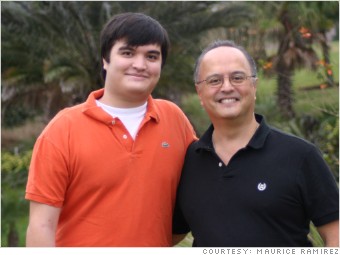

Some doctors are quitting medicine after they find a new passion; others are burned out and fed up with shrinking reimbursements or being overloaded with patients.

As a 12-year ER physician in Florida, Dr. Maurice Ramirez dealt with critical emergency care situations on an almost daily basis.
But living in the hurricane-prone state also made him keenly aware of the need for hospitals to be fully prepared to deal with medical emergencies arising from disasters both natural and man-made. "I started to think about it more and more after the Oklahoma City bombing and 9/11," said Ramirez.
So in 2003, he co-founded a disaster preparedness consulting firm called High Alert International. It advises and assists medical centers on dealing with disaster-related emergencies.
Over the next 10 years, Ramirez and a colleague grew the company and turned it into a nonprofit institute. As the company took up more of his time, he also stopped practicing medicine. "I did feel a sense of loss about not actively practicing anymore," he said. But Ramirez said he still felt connected to his profession through his company's work.
In 2011, a chronic illness forced Ramirez to take a leave of absence from his company. But "even if my health could be restored, I really would not want to actively practice medicine beyond disaster response work," he said.
Now, Ramirez said he's content being a single father and a "basketball dad."
He's now actively working alongside his 17-year-old son Nicholas, who was recently diagnosed with the same rare chronic disease as Ramirez.
"I'm happy raising awareness about chronic diseases," Ramirez said.